Frogs’ croaking is one of nature’s most familiar nighttime sounds, but there’s far more to these calls than meets the ear. Their nightly songs are full of meaning—ranging from finding mates to staying safe and even predicting rain. Beyond their functional purposes, these calls have inspired myths, environmental studies, and countless cultural traditions. Let’s dive deeper into the fascinating reasons behind their croaks and explore the extra quirks that make frogs so captivating
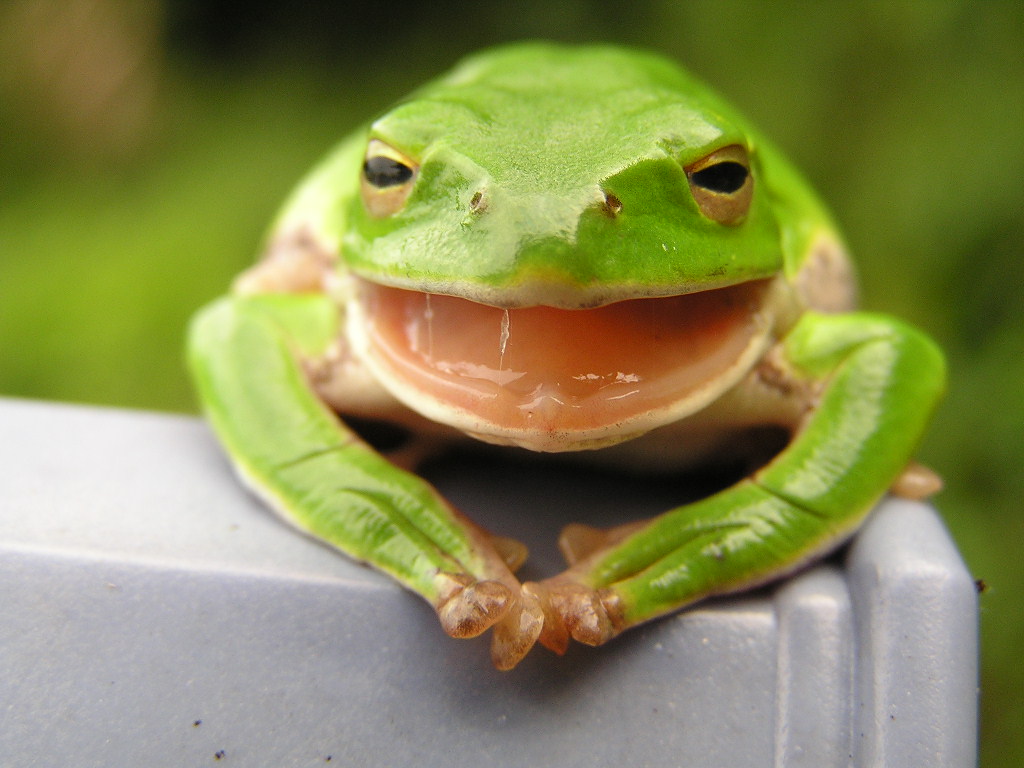
1. To Attract a Mate

Wikimedia Commons
Male frogs croak to catch the attention of females, broadcasting their availability like nature’s most persistent suitors. Each species has its own distinct call, ensuring females can identify potential mates from the right species. The louder and more rhythmic the call, the more appealing it is to a female frog. In many species, the croakiest frog gets the girl.
Interesting Fact: Some frogs, like the American bullfrog, can croak loud enough to be heard from over a mile away. In folklore, their calls have been likened to a love song—a nighttime serenade under the stars.
2. To Establish Territory
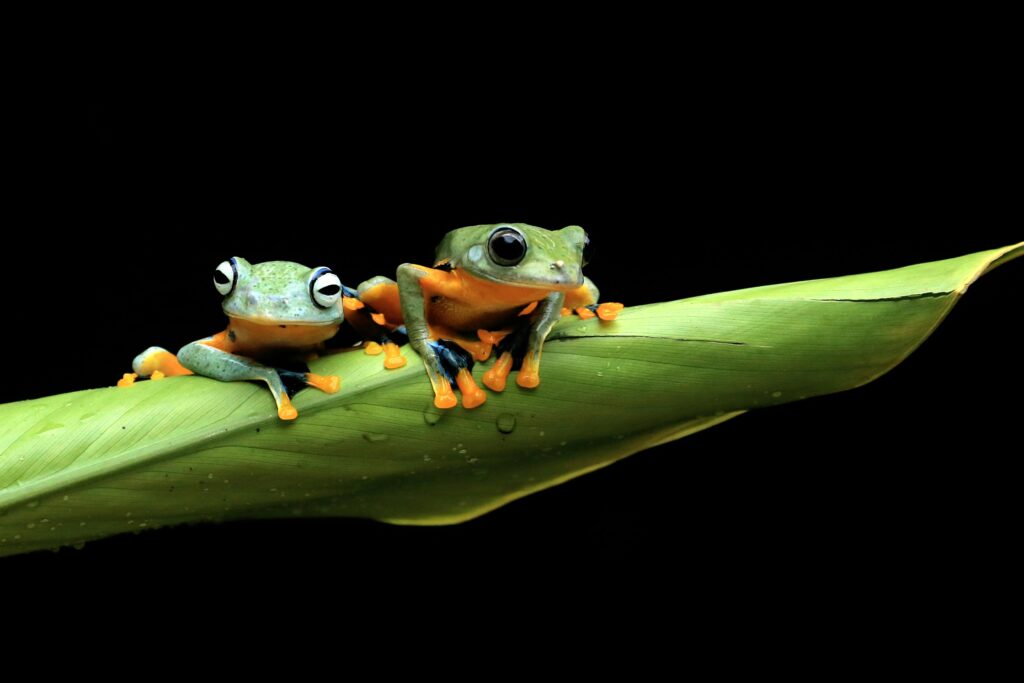
Pexels: Jeffry S.S.
Male frogs use their croaks to mark their territory and warn off rivals. These calls serve as a clear message: “This space is taken!” By vocalizing their presence, they reduce the chance of confrontations, saving energy for more important tasks like finding a mate.
Interesting Fact: Some frogs deepen their calls to sound bigger and more intimidating. It’s the amphibian equivalent of puffing up your chest! This clever trick can often scare off rivals without the need for a fight.
3. Cooler Night Air Helps Them Sing
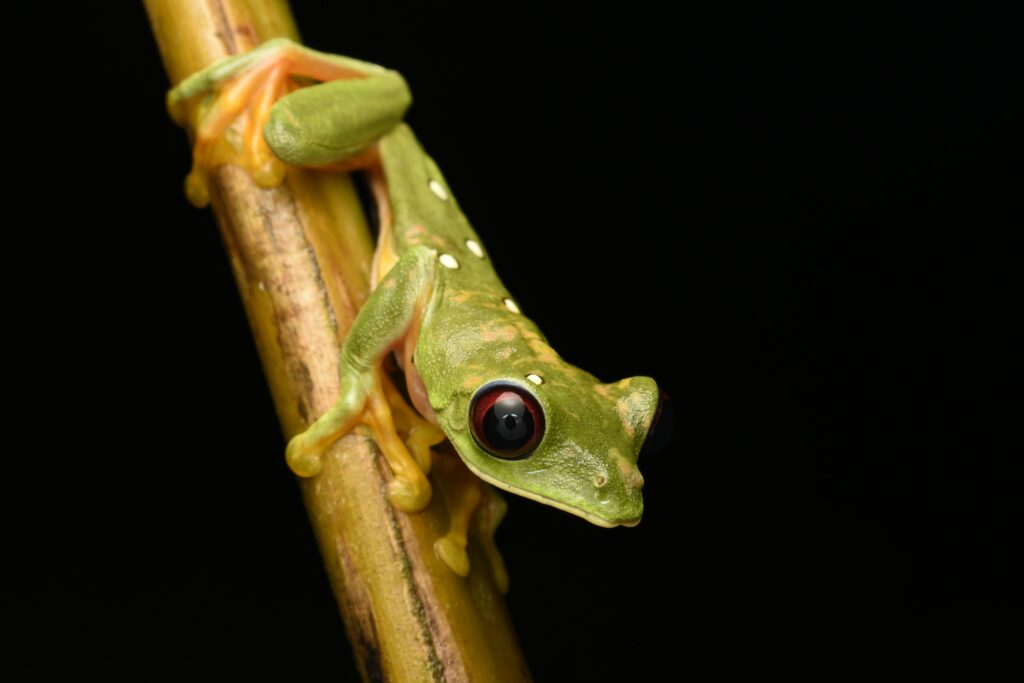
Pexels: Steve Paton
Frogs thrive in cooler conditions, which is why they’re more active at night. The lower temperatures are easier on their cold-blooded bodies, and the still air at night helps carry their calls farther. This makes evenings the perfect time for their vocal performances.
Interesting Fact: Frogs have an expandable throat pouch that acts like a natural speaker. This amplifies their calls, making them louder and clearer—perfect for reaching frogs across ponds or fields.
4. To Stay Safe from Predators
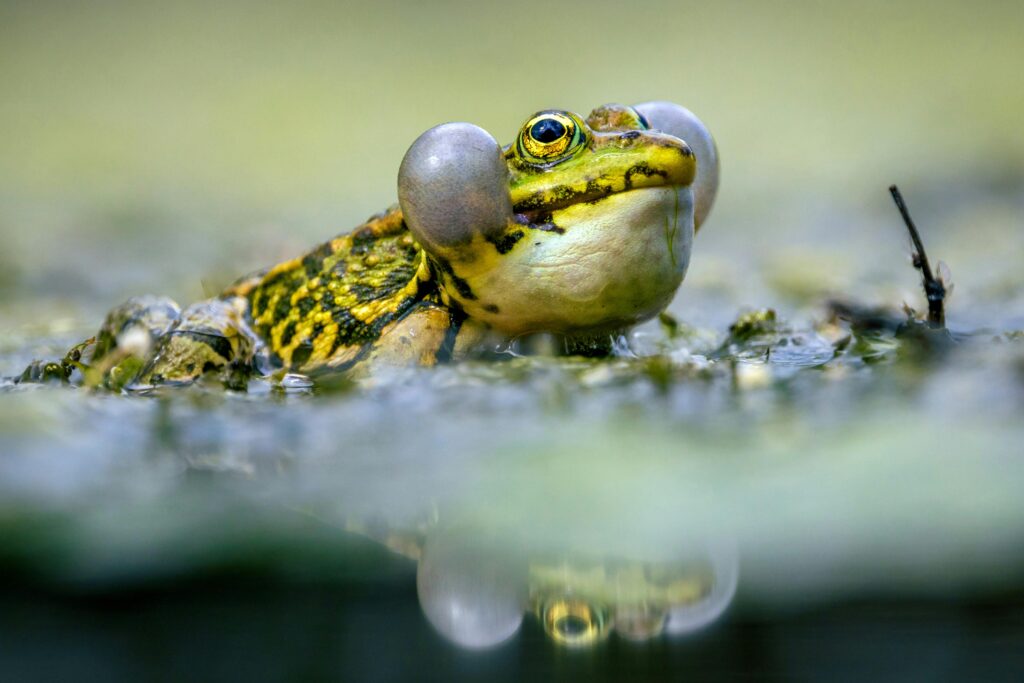
Flickr: Denitsa Kireva
Frogs are vulnerable to predators like birds, snakes, and mammals, many of which are less active at night. By croaking after dark, frogs can call out without as much risk of being spotted or eaten.
Interesting Fact: Some frogs have evolved to “throw” their voices, making it difficult for predators to locate them. It’s like playing ventriloquist in the wild—a genius survival trick!
5. To Signal Rain Is Coming
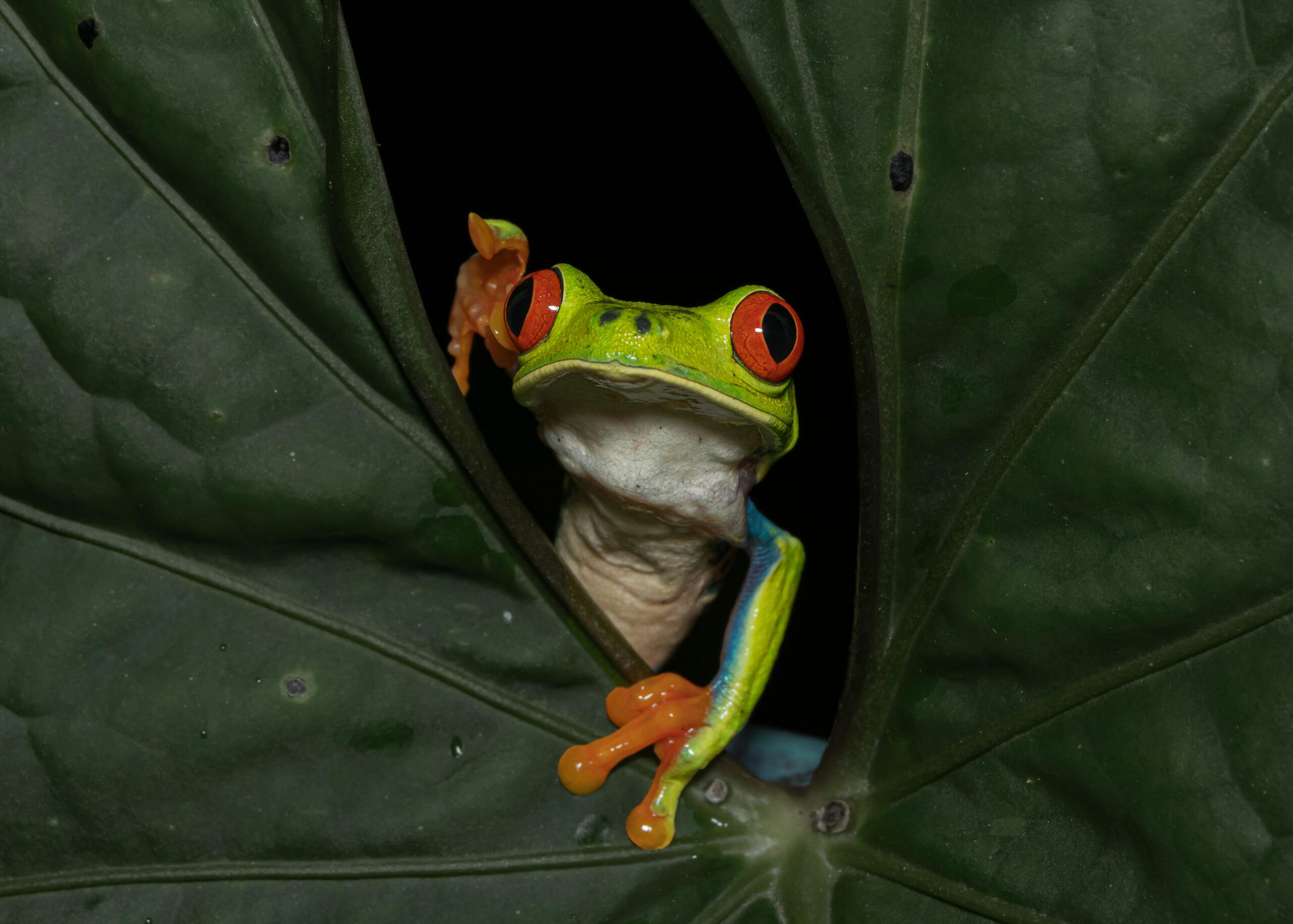
Pexels: Gabriel Rondina
Frogs are often more vocal before rain. Rain provides frogs with fresh water for breeding and makes insects, their primary food source, more active. For many frogs, croaking is a way to celebrate the coming rain—or encourage it, according to old legends.
Interesting Fact: In some cultures, frogs’ croaks are considered omens of rain. In ancient Aztec mythology, frogs were even thought to summon storms with their songs.
6. To Communicate with Other Frogs
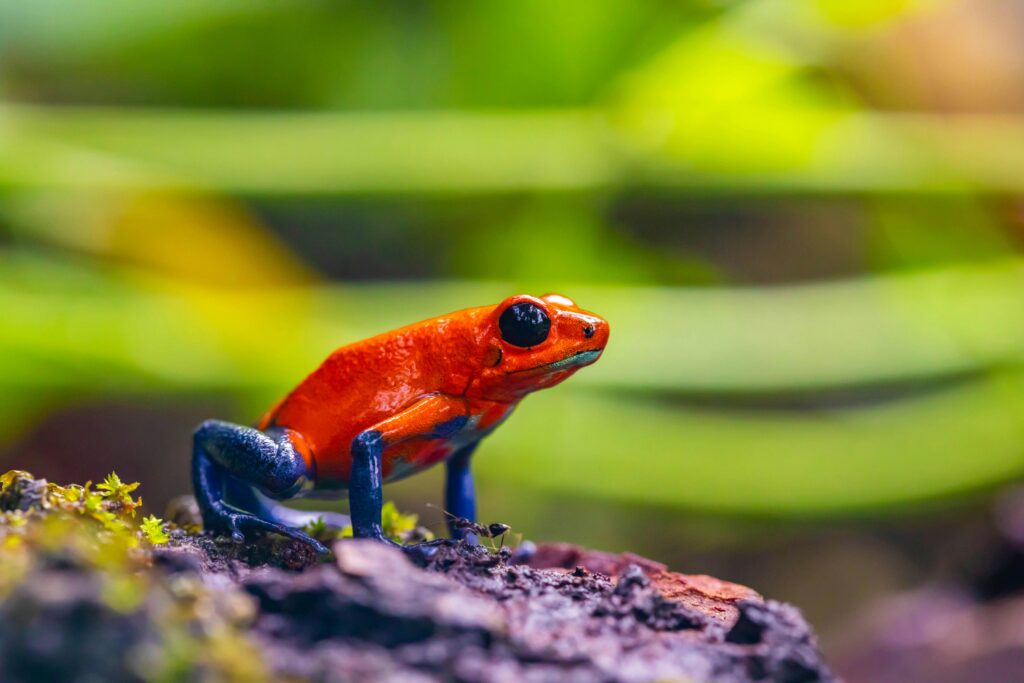
Pexels: ABCDee David
Frogs don’t just croak to find mates—they also use their calls to communicate with other frogs. Their croaks can warn of danger, coordinate movements, or simply announce their presence to the group.
Interesting Fact: Some frogs have complex “languages” with different croaks for different messages, like a “watch out” warning versus a “come closer” invitation. It’s a social system in miniature.
7. To Advertise They’re Single
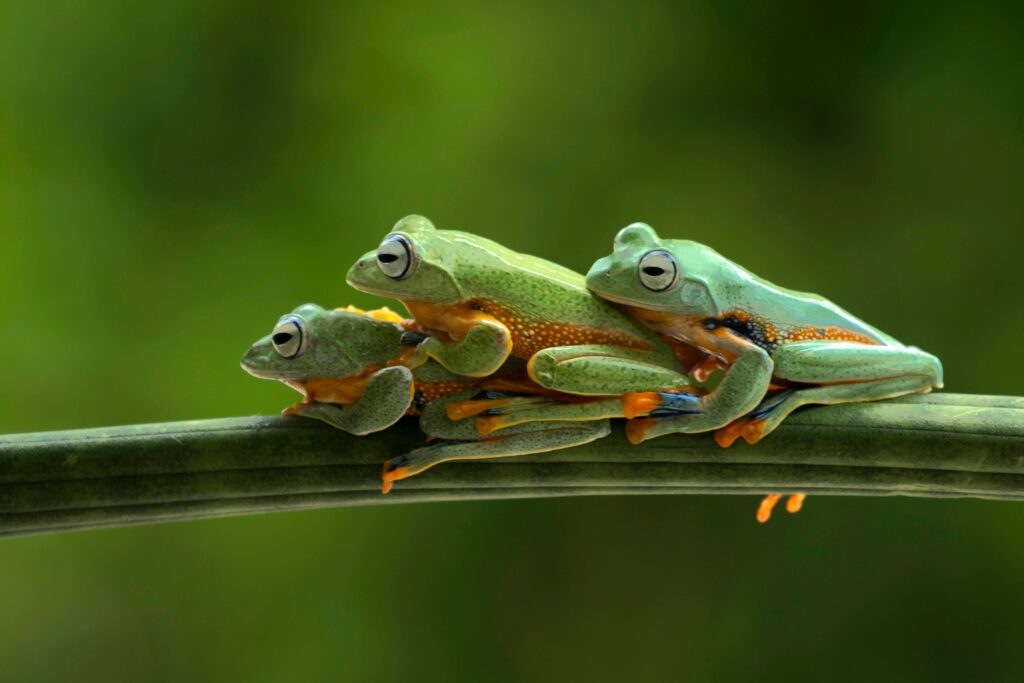
Croaking is a sure sign of a single male frog. Once a male finds a mate, he’ll often stop croaking and let his quiet rivals take over the airwaves. Silence, in the frog world, is the mark of someone who’s already spoken for.
Interesting Fact: Some males use strategic timing to croak only after their louder rivals stop, sneaking in their calls to attract females without drawing too much attention.
8. To Compete for Attention
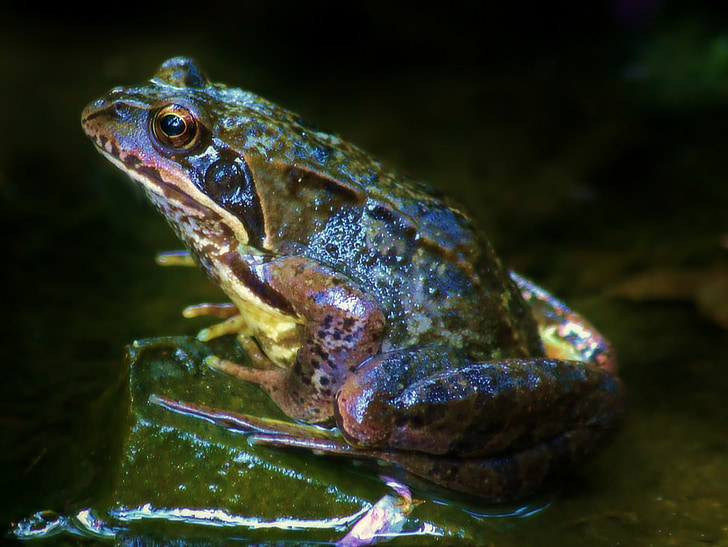
Pickpik
Frogs aren’t just calling—they’re competing. Male frogs try to out-croak one another to prove their strength and stamina. In this competition, endurance matters as much as volume. The longest and loudest croaker often wins.
Interesting Fact: Certain species, like the green tree frog, can croak for hours on end without stopping. It’s a marathon, not a sprint, in the world of frog calls!
9. The Quiet Night Makes Them Stand Out

Flickr: Jonnathan Marin
Nighttime is naturally quieter, with less noise from wind, humans, and other animals. This calm allows frogs’ croaks to stand out, travel farther, and reach their intended audience without interference.
Interesting Fact: Frogs’ ears are specially adapted to filter out the noise of their own calls, ensuring they can still hear potential mates or rivals during a loud chorus.
10. To Attract Prey

Pexels
In some species, croaking doubles as a hunting strategy. Their calls draw insects closer, turning their nighttime singing into an opportunistic dinner invitation.
Interesting Fact: Frogs’ sticky tongues can snatch up insects faster than the blink of an eye, making them some of the quickest hunters in the animal kingdom.
11. They’re Just Happy
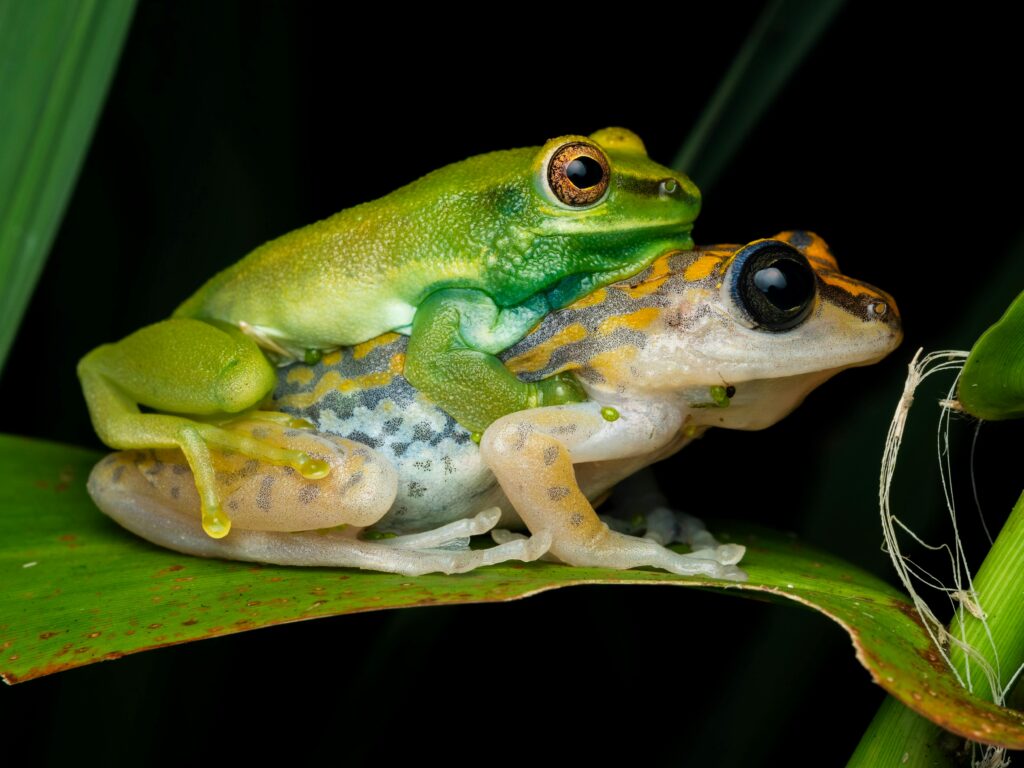
Flickr: ABCDee David
Sometimes, croaking is simply a sign that a frog is happy and content. If the weather is right, food is plentiful, and there’s no danger in sight, frogs will croak to express their comfort and satisfaction.
Interesting Fact: Frogs are incredibly adaptable, thriving in environments ranging from tropical rainforests to deserts. Their resilience is part of what makes them so successful.
12. To Warn About Danger
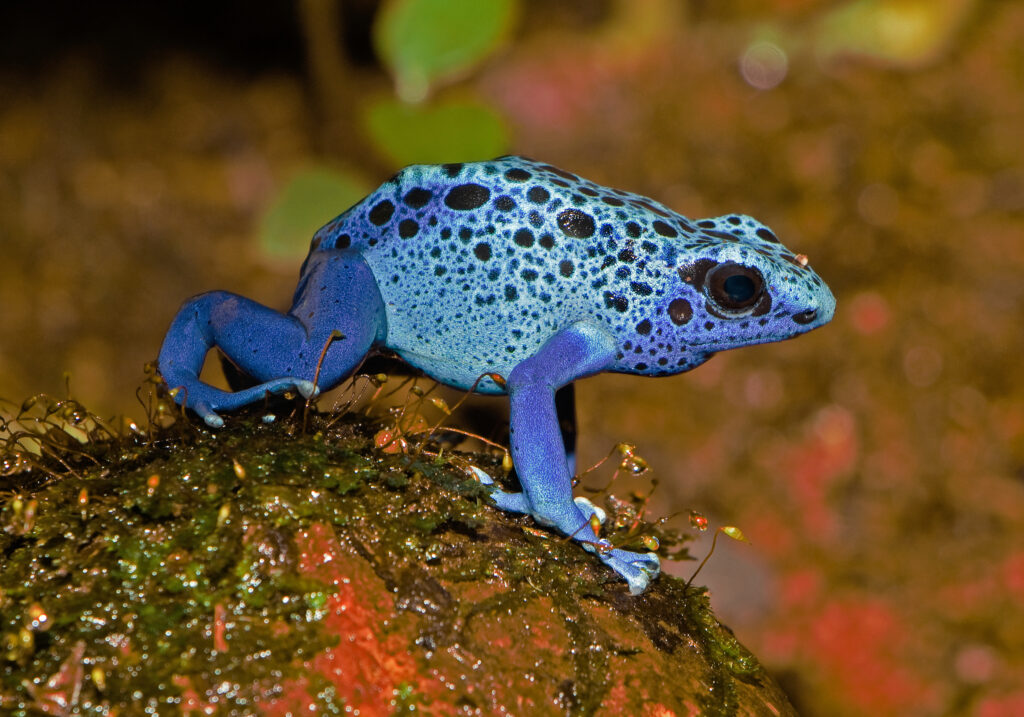
Wikimedia Commons
When frogs sense predators, they may let out a distinctive warning croak. This not only alerts nearby frogs but can also startle or distract the predator, giving the frog a chance to escape.
Interesting Fact: Some frogs mimic the calls of more dangerous animals, like snakes, to scare off predators. It’s a clever bluff that often works!
13. To Sing Under the Moon
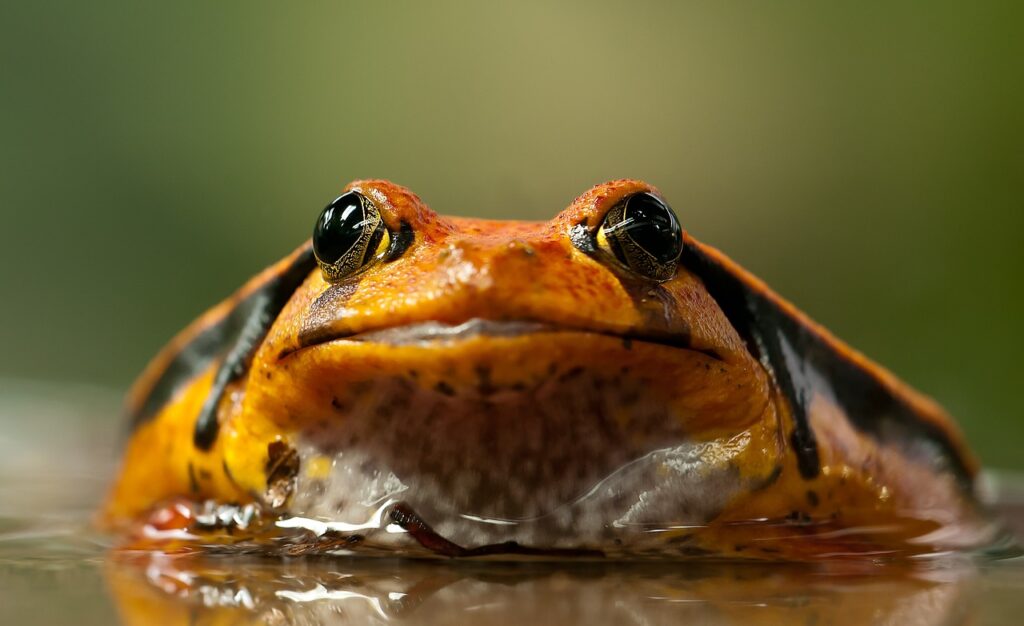
Pixabay: Miniformat65
Frogs tend to croak more during full moons when the extra light encourages activity. The sight of frogs singing under a glowing moon is as beautiful as it is mesmerizing.
Interesting Fact: Frogs have been symbols of transformation and mystery in many cultures, often tied to the moon and water.
14. Mating Season Makes Them Louder

Pexels: Steven Paton
During mating season, frogs become especially vocal. The abundance of water and food creates the perfect conditions for breeding, so frogs don’t hold back when it’s their time to shine.
Interesting Fact: Some frogs create elaborate foam nests for their eggs, protecting them from predators and harsh conditions.
15. To Show They’re Strong
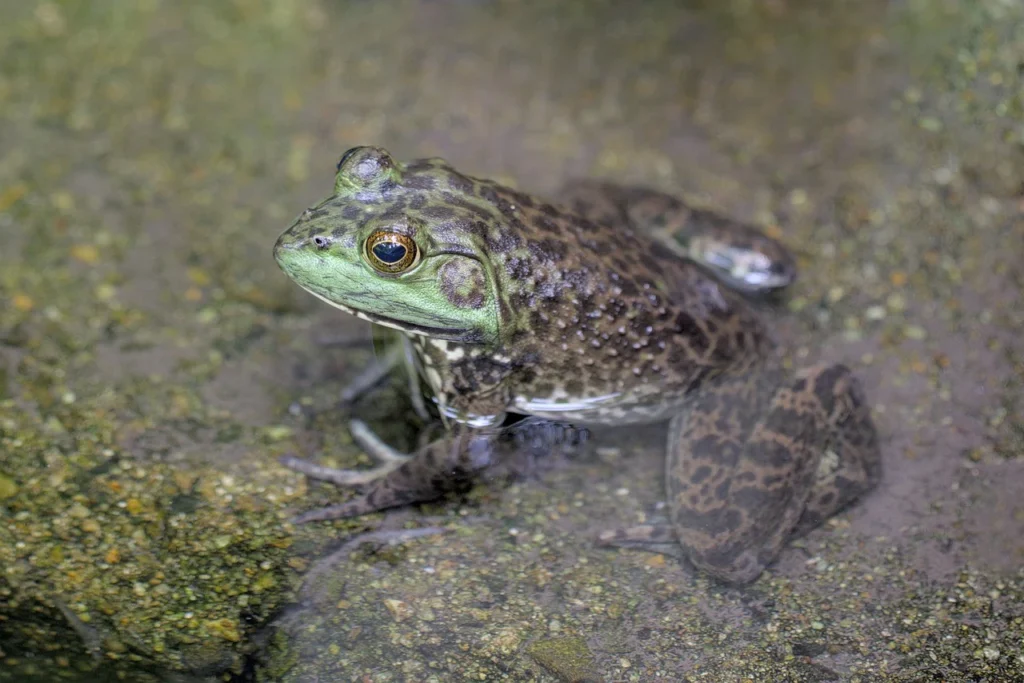
Pixabay: DerWeg
A loud, steady croak signals good health and strength. Female frogs are naturally drawn to the most impressive calls, as they suggest a male who’s fit and capable.
Interesting Fact: Frogs can recover quickly from injuries, giving them an edge in their tough, competitive environments.
16. To Stay Connected with Their Group

PickPic
Croaking helps frogs stay connected to their community. Even after dark, they use their calls to check in, maintain group cohesion, and avoid getting separated.
Interesting Fact: In large groups, frogs often synchronize their calls, creating a rhythmic chorus that’s as captivating as it is loud.
17. Because It’s Instinctual
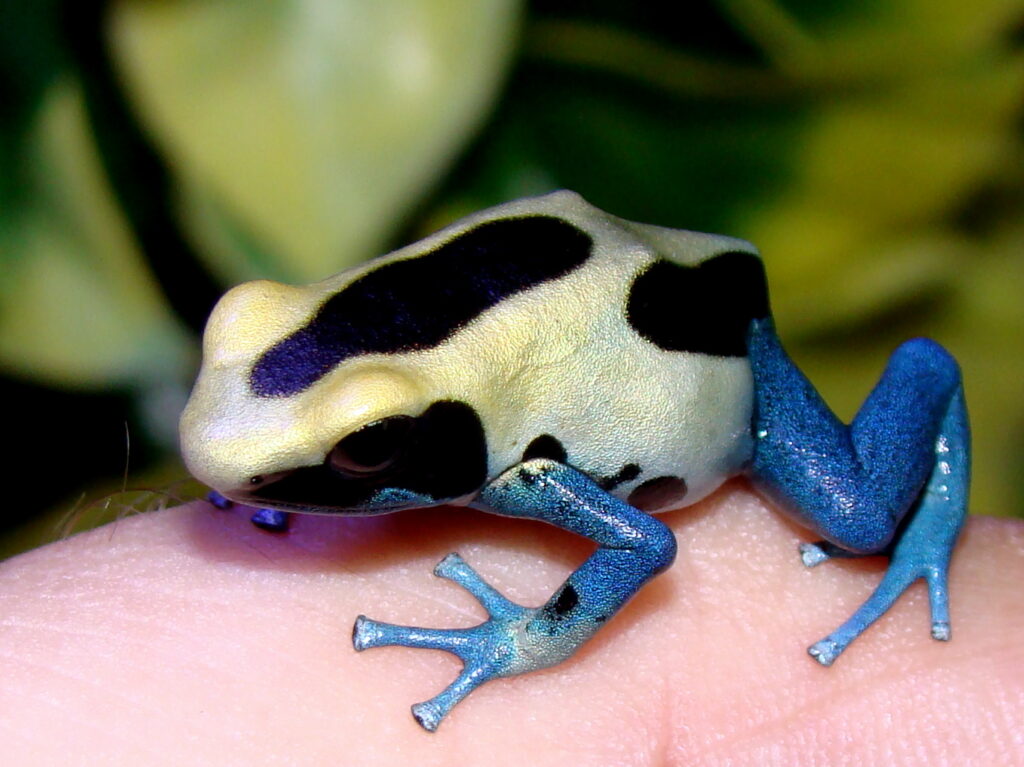
Wikimedia Commons
Croaking is hardwired into a frog’s DNA. It’s a behavior they’re born knowing how to do, ensuring they can fulfill essential tasks like finding mates and protecting their territory.
Interesting Fact: Even young frogs, still developing their vocal cords, will practice their croaks as they grow.
18. To Protect Their Space

Frogs croak to keep their territory safe. Their calls act like vocal barriers, ensuring other frogs don’t encroach on their space.
Interesting Fact: Frogs will often puff up their bodies and throats while croaking, making them look larger and more imposing to potential rivals.
19. To Be Part of the Night’s Symphony
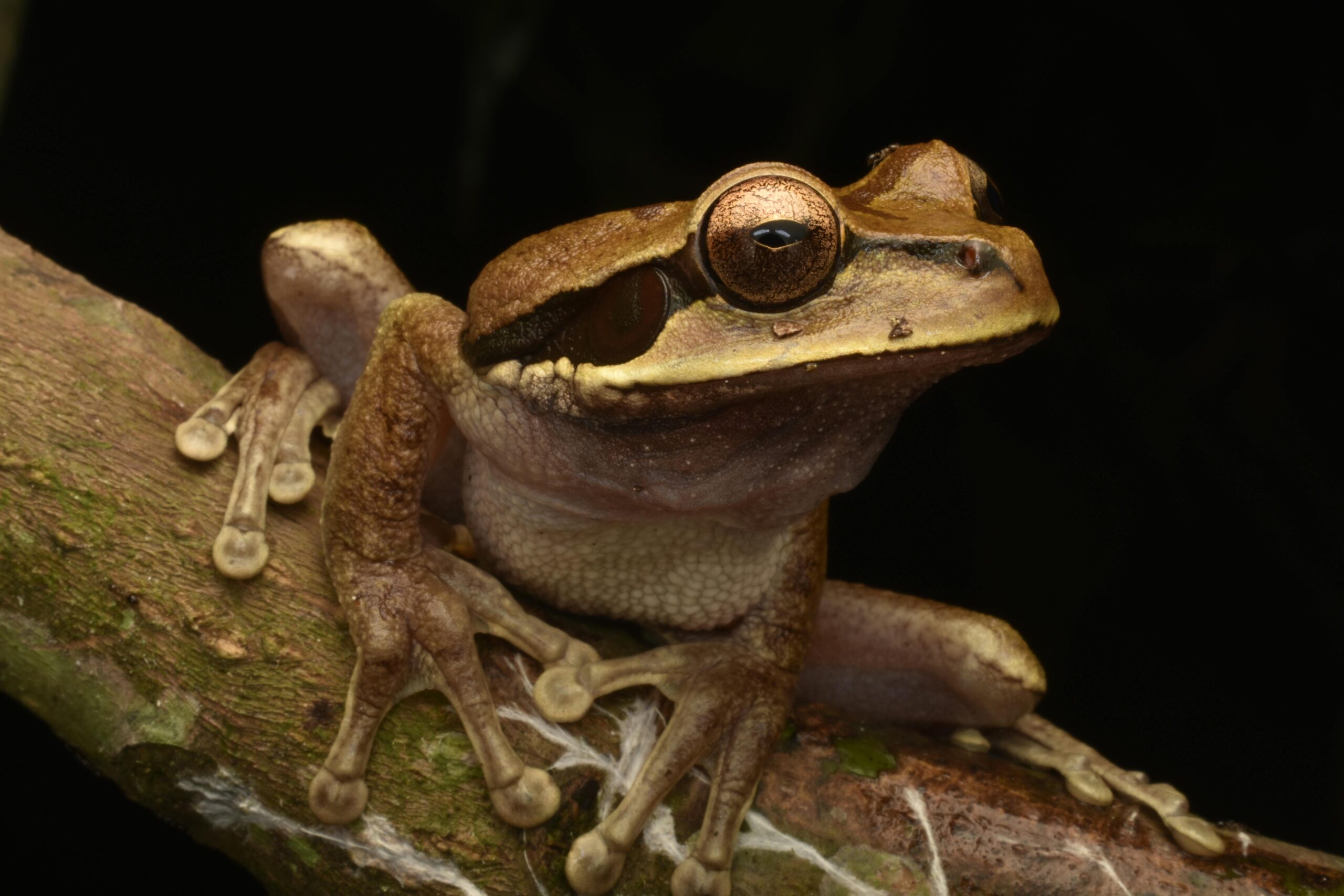
Finally, frogs croak to join the natural chorus of the night. Their combined voices create the familiar soundtrack of summer evenings, adding to the harmony of the natural world.
Interesting Fact: Frog calls have inspired songs, poems, and legends across cultures, celebrating their role in nature’s nighttime orchestra.
These 19 reasons highlight how frogs’ croaking isn’t just background noise—it’s a fascinating blend of survival, communication, and even a little magic. The next time you hear their nightly chorus, you’ll know exactly what they’re saying!


